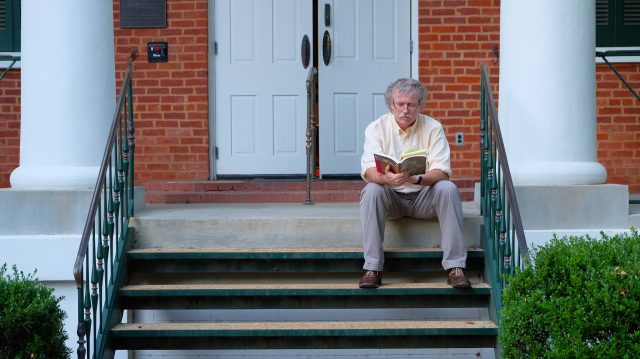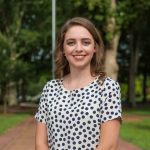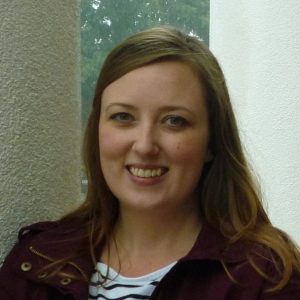Congrats to Professor Paul Polgar, one of the three finalists for the 2020 Harriet Tubman Prize, which honors the best notification book on the slave trade, slavery & anti-slavery in the Atlantic World. The winner will be announced in November 2020.
We, the undersigned historians of the University of Mississippi, join our colleagues in American history in repudiating the plans to renovate the university cemetery as part of the Confederate monument relocation. We agree that the University must explicitly renounce the white supremacist ideology that the monument represents. The proposed plans for the cemetery perpetuate this ideology.
In keeping with the assessment of our late colleague, John Neff, a scholar of memory and commemoration in the Civil War, we particularly reject the placement of headstones at the Confederate cemetery. We support our colleagues’ statement of June 22, 2020, share their opposition to the redevelopment of the cemetery, and demand the immediate release of all records concerning the University’s decision-making process on these matters.
Signed,
Jesse Cromwell
Chiarella Esposito
Lester L. Field
Joshua First
Joshua Howard
Vivian Ibrahim
Zachary Kagan Guthrie
Frances Kneupper
Marc H. Lerner
Theresa Levitt
Alexandra Lindgren-Gibson
Mohammed Bashir Salau
Isaac Stephens
Peter Thilly
Nicolas Trepanier
Jeffrey R. Watt
Noell Wilson
 OXFORD, Miss. – After Ted Ownby stepped down as the director of the Center for the Study of Southern Culture at the University of Mississippi in 2019, he wanted to do something different, so he decided to apply for a Fulbright Award.
OXFORD, Miss. – After Ted Ownby stepped down as the director of the Center for the Study of Southern Culture at the University of Mississippi in 2019, he wanted to do something different, so he decided to apply for a Fulbright Award.
To his delight, he received word that he will be the Danish Distinguished Chair in American Studies at the University of Southern Denmark, which combines research and teaching and is the most prestigious Fulbright grant in Denmark.
Ownby, the UM William Winter Professor of History and professor of Southern studies, made his decision after attending the Southern Studies Forum in Denmark last year.
“The Center for American Studies at the University of Southern Denmark is a lively group with several scholars interested in the American South, and the university is an attractive place; I remember walking trails, bicycles and lots of birds,” Ownby said.
“The city of Odense is Denmark’s third-largest city, famous among other things as the home of Hans Christian Andersen, and I look forward to getting to know it. I’ll teach in English, but I’m slowly and awkwardly learning some Danish.”
He will teach one class to either graduate or upper-level undergraduates with class sizes of approximately 25-45 students. He also will give at least one public lecture at the University of Southern Denmark, attend faculty meetings, talk to faculty and students, and be available to travel to other European universities.
Katie McKee, director of the Center for the Study of Southern Culture, has been a colleague of Ownby for many years.
“This Fulbright is a tremendous opportunity for Dr. Ownby, a well-deserved chance for adventure after many years of serving as center director and a real testament to the excellence of his scholarship,” McKee said.
The award was intended for the 2020-21 academic year, but the COVID-19 pandemic shortened the stay to the spring semester only, which begins in January 2021. Coincidentally, robotics researchers at the University of Southern Denmark have developed the world’s first fully automatic robot capable of carrying out throat swabs for COVID-19, so that healthcare professionals are not exposed to the risk of infection.
“I proposed two classes when I thought I would be there for two semesters: one on my current book project on ideas about innocence in 20th-century Mississippi and the other a broader class on recent scholarship in Southern history,” Ownby said.
“Now the plan is either to teach the class about Mississippi, or maybe to team teach with a couple of colleagues in Denmark. Of course, it’s hard to plan right now, because it’s possible that health conditions won’t allow international travel.”
January should be an especially intriguing time to be teaching about the U.S. because classes will begin just a few days after the presidential inauguration.
“That election, no matter what I’m teaching about, will likely be a starting point for some good discussions,” Ownby said. “More broadly, teaching U.S. history outside the U.S. is always useful – I saw this teaching in the Fulbright program in Italy almost 30 years ago – because it makes faculty think about the questions we start with and encourages us to think about making comparisons we might not have considered.”
Colleagues in the history department are especially thrilled with Ownby’s award, said Noell Wilson, chair of history and Croft Associate Professor of History and International Studies.
“It reveals the global profile of our faculty, even those who work primarily on U.S. history and not necessarily (on) international topics,” Wilson said. “We are constantly looking to build intellectual bridges with colleagues in Europe and beyond and are grateful to Ted for sharing his expertise with scholars and students in Denmark to establish collaborations in Scandinavia.”
Both the Danish and U.S. governments financially support this program. The Fulbright U.S. Scholar Program offers approximately some 470 teaching, research or combination teaching/research awards in more than 125 countries.
Opportunities are available for college and university faculty and administrators as well as for professionals, artists, journalists, scientists, lawyers, independent scholars and many others. Besides several new program models designed to meet the changing needs of U.S. academics and professionals, Fulbright offers flexible awards including multicountry opportunities.
On June 22, 2020, the Americanist faculty in the Arch Dalrymple III Department of History released a statement in response to recently obtained plans created by the University of Mississippi and approved by the Institutions of Higher Learning Board for the relocation of the Confederate monument on campus.
June 22, 2020
We, the undersigned American historians working at the University of Mississippi, strongly oppose the recently released plans to renovate and add headstones to the Civil War cemetery on campus as part of the relocation of the Confederate monument. Ideally, we believe this monument should be removed from campus entirely, given its explicitly white supremacist origins. But if it remains on campus, it should not be glorified and the university should make it clear that it rejects the racist and hateful ideology this monument represents.
We oppose the renovation of the cemetery and the addition of headstones because:
As historians, we know that monuments reflect the values of the people who erect them. To glorify the cemetery and the relocated Confederate monument in the ahistorical ways the university has proposed is to build a new Confederate monument in 2020, effectively reenacting the injustice that white supremacists committed when they erected it in 1906. In doing so, the university will create a new destination for neoconfederate and other extremist groups on campus, not only violating its stated values, but also jeopardizing the peace and safety of its students, faculty, and staff. We urge the university to leave the cemetery as it currently is. Further, to begin to repair the breach of trust with campus constituents that the university has committed during this episode, we demand that the university immediately make public all records of its deliberations and decision-making regarding the plans for the relocation of the Confederate monument and the redevelopment of the cemetery.
Signed,
Mikaela M. Adams, Associate Professor of History
Garrett Felber, Assistant Professor of History
Darren E. Grem, Associate Professor of History and Southern Studies
Shennette Garrett-Scott, Associate Professor of History and African American Studies
April Holm, Associate Professor of History and Interim Director, Center for Civil War Research
Rebecca K. Marchiel, Assistant Professor of History
Ted Ownby, Professor of History and Southern Studies
Eva Payne, Assistant Professor of History
Paul J. Polgar, Assistant Professor of History
Jarod Roll, Associate Professor of History
Charles Ross, Professor of History and African-American Studies
Susan Gaunt Stearns, Assistant Professor of History
Anne Twitty, Associate Professor of History
Jessica Wilkerson, Assistant Professor of History and Southern Studies
 The 2020 Franklin L. Riley Prize for the best undergraduate paper has been awarded to Jessica Flach for “A Fate Worse than Death: The Threat of Rape During the Civil War and the Southern White Woman’s Response.”
The 2020 Franklin L. Riley Prize for the best undergraduate paper has been awarded to Jessica Flach for “A Fate Worse than Death: The Threat of Rape During the Civil War and the Southern White Woman’s Response.”
In her paper, which was produced in a history capstone seminar taught by Professor April Holm, Flach explains how the threat of rape was employed both by Union and Confederate soldiers in an attempt to control the behavior of white southern women during the Civil War. Using personal diaries, Flach demonstrates that these threats did not always have their intended effect. Some women responded by defying orders from both northern and southern men.
 The 2020 John W. Odom Memorial Prize in Southern History has been awarded to Matthew Powell for “How the Mighty Fell: The Decline of Generational Wealth among the Planter Elite Families of Desoto County, Mississippi, 1836-1870.” The Odom Prize is given to the best undergraduate or graduate paper on southern history.
The 2020 John W. Odom Memorial Prize in Southern History has been awarded to Matthew Powell for “How the Mighty Fell: The Decline of Generational Wealth among the Planter Elite Families of Desoto County, Mississippi, 1836-1870.” The Odom Prize is given to the best undergraduate or graduate paper on southern history.
Powell’s paper, which was written in a capstone seminar taught by Professor Anne Twitty, examines the decline of intergenerational wealth among DeSoto County’s planter elite as a result of Confederate defeat and emancipation. Specifically, he selected four DeSoto County slaveholding families—each of whom had sent at least one son to be educated at the University of Mississippi during the 1850s and then serve the Confederacy during the 1860s—and traced their financial fortunes from the county’s founding in 1836 to the midst of Reconstruction in 1870. In the end, using census, military, and University records, Powell was able to show, in a particularly concrete fashion, just how economically devastating the decision to secede was for some of the South’s wealthiest residents.
Powell, an Olive Branch native, graduated with his B.A. in history in May 2020. During his undergraduate career, he spent summers working as a park ranger at Shiloh National Military Park and Bighorn Canyon National Recreation Area in Fort Smith, Montana. He has earned a full scholarship to pursue a master’s degree in history at Northern Arizona University.
 The 2020 Tennin-Alexander Prize for the best graduate paper has been awarded to Ashleen Williams for “Oh Men of Justice! 20th Century Political Petitions in Bahrain and a Negotiated Nation.” Williams is currently a history PhD student as well as the Barksdale Senior Fellow at the Sally McDonnell Barksdale Honors College
The 2020 Tennin-Alexander Prize for the best graduate paper has been awarded to Ashleen Williams for “Oh Men of Justice! 20th Century Political Petitions in Bahrain and a Negotiated Nation.” Williams is currently a history PhD student as well as the Barksdale Senior Fellow at the Sally McDonnell Barksdale Honors College
“Oh Men of Justice! 20th Century Political Petitions in Bahrain and a Negotiated Nation,” which was written under the direction of Professor Vivian Ibrahim, examines the crucial role of colonial petitioning in 20th Century Bahrain. Uncovering newly discovered Arabic and English archival material, Williams incisively argues that indigenous communities used a global language of rights and justice to advocate for local reforms.
 Arch Dalrymple III Department of History PhD Candidate Monica Campbell has recently been awarded a Dissertation Year Fellowship for the 2020-21 academic year from the Truman Library Institute in Independence, Missouri. This fellowship will allow her to focus solely on completing her dissertation.
Arch Dalrymple III Department of History PhD Candidate Monica Campbell has recently been awarded a Dissertation Year Fellowship for the 2020-21 academic year from the Truman Library Institute in Independence, Missouri. This fellowship will allow her to focus solely on completing her dissertation.
Campbell’s dissertation, “Slums Are Our Most Expensive Luxuries”: Little Rock’s MetroPlan and the Making of the Neoliberal City, 1939-1980,” uses a case study of urban renewal efforts in Little Rock to show how neoliberal urban planning policies began to challenge the reigning Keynesian liberal model as early as the 1950s, not in the 1970s, as scholars currently contend. While other scholars have focused on well-studied, large cities like New York, where urban planners oversaw massive projects with explicit social purposes, her research uses a rich but neglected set of archival sources in Little Rock to show how smaller cities in the South and West experimented at the same time with business-centric plans that jettisoned moral concerns for market considerations. Although these market-based policies echoed contemporary critics like Milton Friedman and Martin Anderson, they reflected a reinterpretation of liberalism, not a wholesale rejection of it. In a period characterized by white flight and suburbanization, by the making of “ghettos” and divestment from the inner city, this reinterpretation sought to harness business and pro-growth politics to revitalize city centers together with state anti-labor policies that would inform the emergence of third-way liberalism in the 1970s. Campbell’s dissertation argues that, although on the national periphery in the 1950s, Little Rock’s urban renewal policies helped redefine the center ground of American political economy twenty years later.
Campbell has also recently received a travel grant from the Friends of the University of Wisconsin-Madison Libraries and will be presenting a paper at the 2020 Policy History Conference.
Black Power at Ole Miss: Remembrance, Reckoning, and Repair at Fifty Years will commemorate the mass arrest of nearly ninety Black students – and expulsion of eight – on February 25, 1970 at Fulton Chapel. The event will remember the activism and sacrifice of students, reckon with the harm and trauma caused by the actions of the university and law enforcement, and seek reparative solutions grounded in truth-telling and justice.
On Monday, February 24, 2020, a brief documentary film screening will be followed by a staged reading of the hearings of eight students who were expelled and a panel discussion moderated by professor Ralph Eubanks (’78). February 25 will feature a luncheon with current and former students, sponsored by the BSU, Black Alumni Association, African American Studies Department and the Division of Diversity and Community Engagement. We will then gather for a ceremony at the site of the chapel arrest at 3pm.
This event is organized and coordinated by the Arch Dalrymple III Department of History and the Division of Diversity and Community Engagement with support from the Office of the Provost, The Division of Outreach: the Office of Pre-College Programs, the UM Internship Experience, the Office of Professional Development and Lifelong Learning, the College of Liberal Arts, and the Center for the Study of Southern Culture.